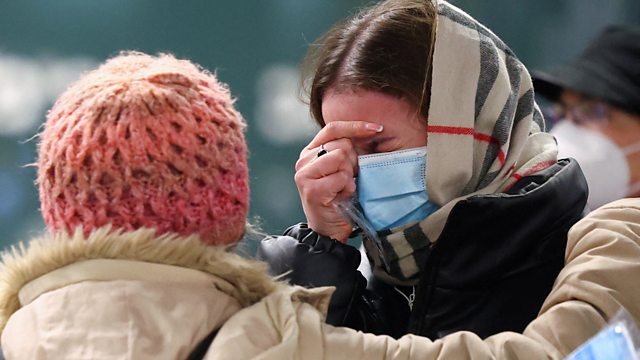Are Ukrainian refugees treated better than others in Europe?
The use of terms such as 'civilised' and 'educated' show how differently Europeans view refugees from Ukraine, as opposed to those from places such as the Middle East or Africa.
One of the most remarked upon issues emanating from the Ukrainian war is the way in which the conflict itself is assessed, and the way in which the people affected by that conflict are being received. European countries have been very welcoming of the refugees, citing their proximity in place as well as in appearance and lifestyle. People seeking refuge from other conflicts have not had the same response. In fact, they've often been met with official and unofficial hostility and violence.
Dr Serena Parekh, an Associate Professor of Philosophy at Northeastern University in Boston, US, explains her thoughts on the difference. She says the use of terms such as 'civilised', 'like us', 'educated' and 'cultured' to describe the refugees, and the surprise that people in Europe were going through this, show how differently Europeans view refugees from Ukraine and from refugees and displaced people from other places. She believes this shows how people have normalised violence in places outside Europe, and how negative perceptions have led to fear and even hostility to refugees from outside Europe.
However, she says it's not a uniform response, and initially at least, people in Germany and Sweden welcomed many hundreds of thousands of Syrian refugees, but that there was still anxiety about how they would integrate into society in those places.
"The war in Ukraine is much closer to home than the wars in Syria, the Middle East or Africa, but race and racism play large roles in how people interpret refugees."
Photo: A Ukrainian refugee is hugged by a German volunteer on her arrival in Berlin Credit: Reuters
Duration:
This clip is from
More clips from Newshour
-
![]()
Scientists find largest ever coral
Duration: 04:45
-
![]()
Samantha Harvey wins the Booker Prize for her novel Orbital
Duration: 07:11
-
![]()
Uranus could be capable of supporting life
Duration: 03:08
-
![]()
Swapping an Epic for a Modern Master
Duration: 12:30






